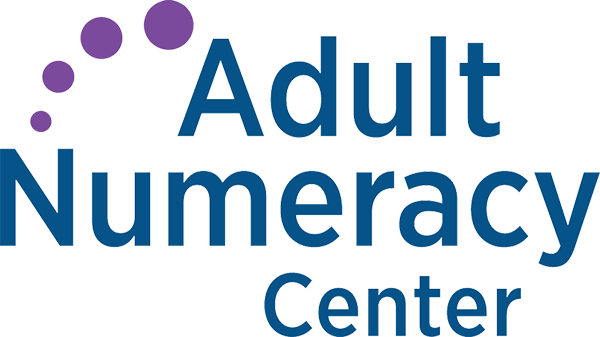Some Help Hurts: Our Responsibility to Our Students
by Sarah Lonberg-Lew
A student joined my class in the middle of April and told me she absolutely had to achieve her high school equivalency by the end of June. “I can. I must. I will,” she said to me. She is willing to do whatever it takes – get a tutor, watch videos about algebra on YouTube, get her high school-aged daughter to help her. She has grit and determination and has been told that this will get her to her goal.
Another student has been with me a bit longer. She has a traumatic history with math education, as so many of our students do, and her mistaken beliefs about what she is capable of (she thinks she is not a math person) consistently interfere with her learning. She also has grit and determination. She is going to succeed at math no matter how painful it is.
My heart breaks for these students. They have worked hard and failed and now they are here trying again and still laboring under the lie that the only thing needed for success is hard work. And if they fail again, who do they blame? They think it must be their fault for not working hard enough. I don’t know how to break through this lie – it is so entrenched, and it serves the status quo so well. If students’ failure can be blamed on their lack of effort, there’s no need to change anything in the way we are teaching. We just need students who work harder.
It isn’t just the students who believe the lie. Teachers and directors believe it too, and with the best of intentions, they become cheerleaders for the students – praising their inordinate effort, giving them extra worksheets, setting them up with tutors, sending them to math websites. It’s like a conspiracy. Everyone involved wants to believe in these hard-working students and support them with extra help and resources. The students ask for more and the teachers provide it. But the students don’t know what they need in order to be successful at math. They think they can learn algebra, geometry, fractions, percents, negative numbers, statistics, exponents, polynomials, functions – you name it – all at once, just by going online and following examples until they’ve memorized it all, or by sitting down with someone who is willing to show them the steps over and over until they stick. That is not how learning happens and we should do everything we can to prevent our students from wasting their time on a fool’s errand like that. And it isn’t just their time that is wasted. How long can they go on like this before they finally succumb to the even bigger lie that math just isn’t for them?
One thing our hard-working, deceived students often ask for is practice tests, and teachers are happy to oblige. After the test is taken, student and teacher conspire in a plot to have the student learn to answer every single question they got wrong. Both parties are happy to set their sights on passing the test, as if that means the same thing as learning. But even if a student can memorize their way through to a high school equivalency certificate, even if they exit a program feeling successful, all we have done is push back that wall they will eventually hit when they, their college instructors, or their employers realize they have not really learned math. When we give students false success, we are still setting them up for failure – it’s just that the failure will come later when we are not there to see it and not there to support them.
Students generally do not appreciate the scope of all the math there is to learn, nor the idea that concepts build upon each other and some are prerequisite for others. Those determined students with grit are willing to learn anything and want to learn everything. Our responsibility to our students is not to give them what they want, but to give them what they can handle, building concepts coherently and helping them learn how to learn. Allow them to struggle, but be sure that struggle is productive. It is wonderful that so many of our students come to us with the willingness to work hard. They are trusting us with their time, their futures, and their self-images. We owe it to them to guide their effort in useful directions, even if those directions are contrary to what they say they want.
If I had an ambition to run a marathon (I don’t!) and I hired a coach to help me prepare, I would expect her to know better than I what level of training and exercise were appropriate for me. If all she did was encourage me to run as fast as I could for as long as I could, I not only would end up unready to run a marathon, but would likely end up injured as well. Even if I was motivated to run for six hours every day (I’m definitely not!), a coach who supported me in that course of action instead of guiding me through a training regimen that built my strength and endurance would not be helping me. Desire to achieve and willingness to work hard are not enough. Our students need thoughtful, considered guidance from teachers who know the terrain better than they do.
=========================================================================
 Sarah Lonberg-Lew has been teaching and tutoring math in one form or another since college. She has worked with students ranging in age from 7 to 70, but currently focuses on adult basic education and high school equivalency. She teaches in an adult education program in Gloucester, MA. Sarah’s work with the SABES Mathematics and Adult Numeracy Curriculum & Instruction PD Center at TERC includes developing and facilitating trainings and assisting programs with curriculum development. She is the treasurer for the Adult Numeracy Network.
Sarah Lonberg-Lew has been teaching and tutoring math in one form or another since college. She has worked with students ranging in age from 7 to 70, but currently focuses on adult basic education and high school equivalency. She teaches in an adult education program in Gloucester, MA. Sarah’s work with the SABES Mathematics and Adult Numeracy Curriculum & Instruction PD Center at TERC includes developing and facilitating trainings and assisting programs with curriculum development. She is the treasurer for the Adult Numeracy Network.
